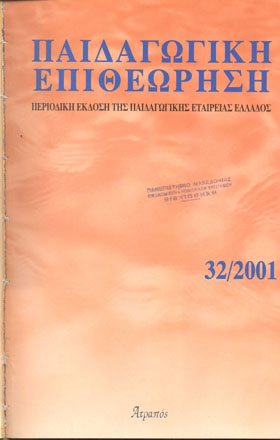Προβληματική συμπεριφορά παιδιών σχολικής ηλικίας σε σχέση με ενδοπροσωπικούς παράγοντες και ατομικά χαρακτηριστικά
Main Article Content
Περίληψη
The main purpose of this study is to examine the relationship of primary school children's self-esteem, Machiavellianism and locus of control with their problem behavior, as evaluated by teachers. The findings, based upon data collected from a sample of 77 teachers and 412 pupils, indicate that there is a significant correlation between the above mentioned personality constructs and problem behavior at school. However, this relationship is differentiated for all syndromes but not for the whole problem behavior symptoms, when the data is analyzed in conjunction with sex, age. Academic achievement and social origin of pupils. Multiple regression analysis shows that antisocial behavior is systematically associated with Machiavellianism, sex and low achievement; neurotic behavior, immaturity and psychosomatics with low self-esteem and low achievement whereas the whole of symptoms with sex, low achievement, low self-esteem, high Machiavellianism and external locus of control. Results are discussed in terms of further study and implications for classroom practice.
Article Details
Τεύχος
Ενότητα
Άρθρα
